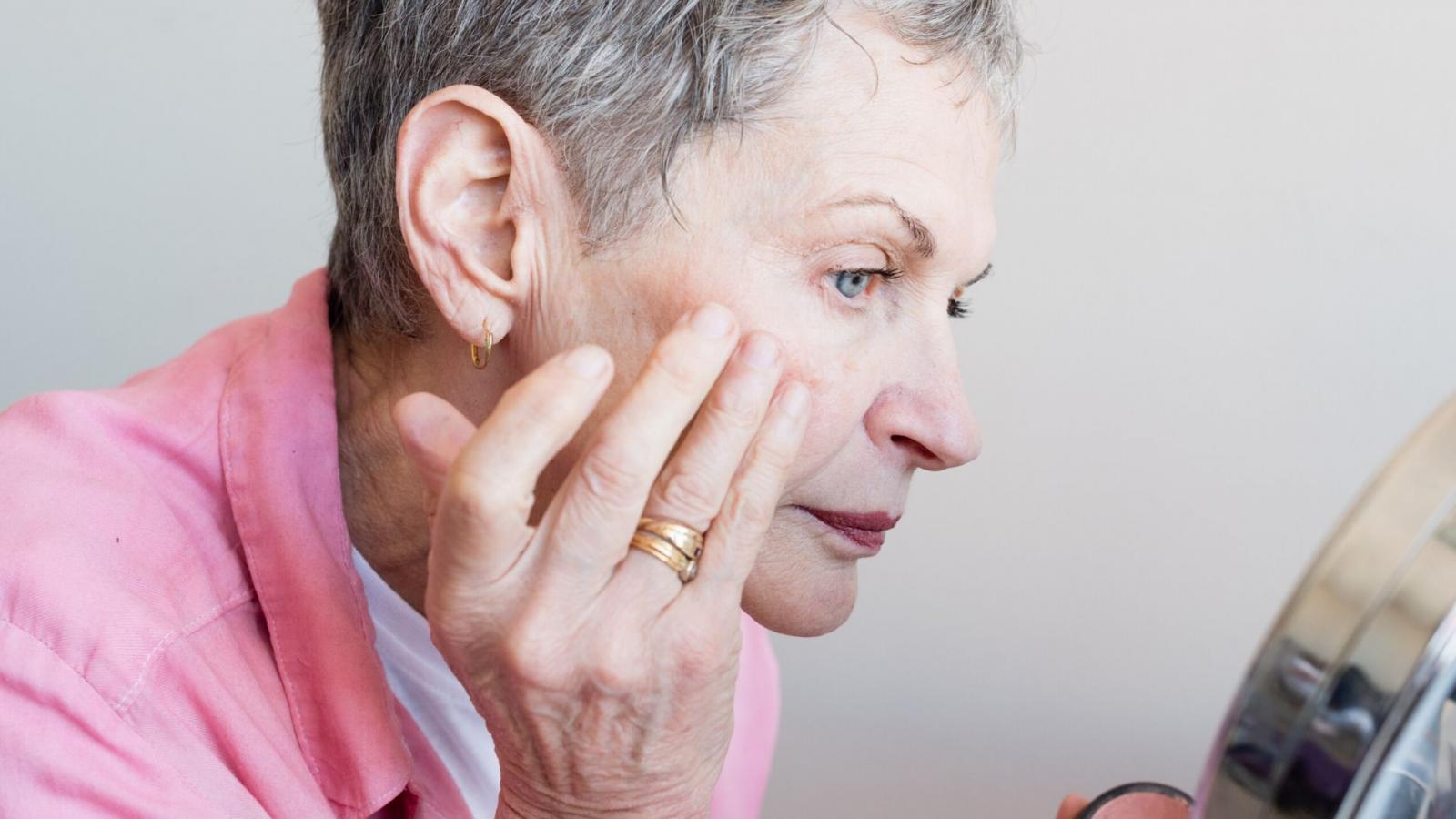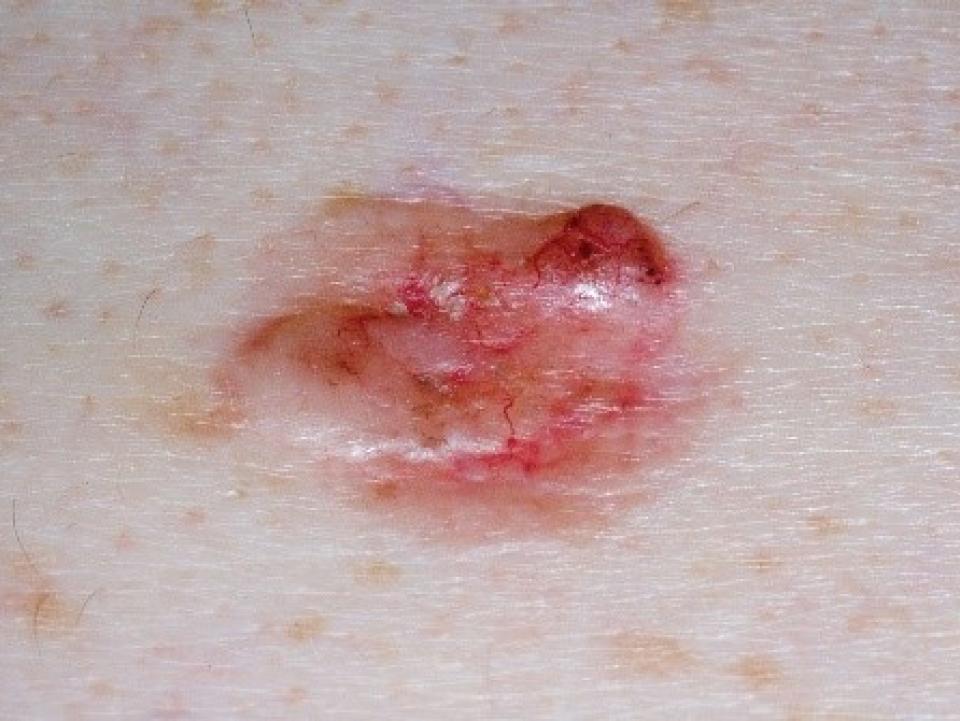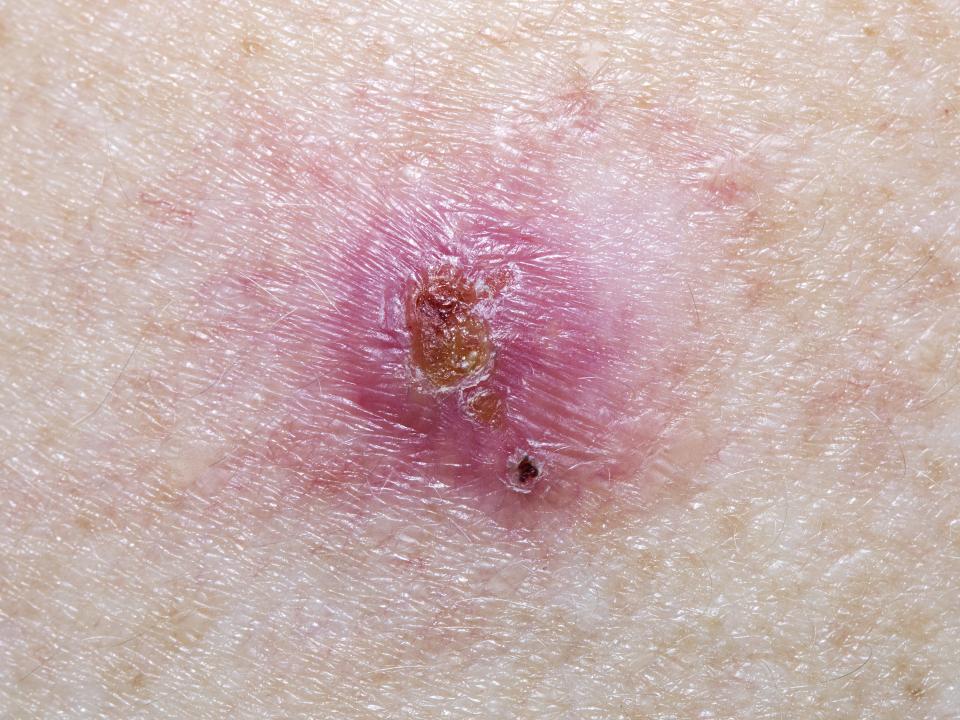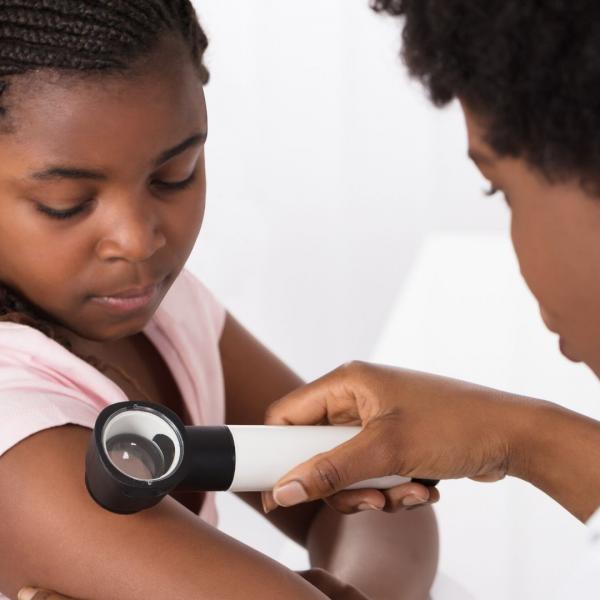Symptoms and diagnosis of non-melanoma skin cancer

On this page:
Symptoms of non-melanoma skin cancer
Skin cancers do not all look the same. They can appear as any of the images below.
If you have any of these signs, get them checked out by your doctor as soon as possible. They will examine you and decide what to do.
Skin changes aren’t necessarily cancer. Spots and sores are common. But it’s important to go to the GP and get anything usual checked out. This includes broken skin that doesn’t heal (an ulcer) within 4 weeks and any new or changing mark on your skin.
Can I be screened for skin cancer?
Testing for skin cancer when you have no symptoms is called screening. There is no national skin cancer screening programme in Ireland at present. The best way to spot cancer early is to check your skin for any changes and go to your GP if you find anything unusual. Read more about how to check your skin.
What might skin cancer look like?

A small lump that is smooth, pearly or waxy.

A flat red spot that is scaly, crusty or bleeding.

A lump that is firm, scaly or has a crusted surface, and may be sore.
Diagnosing non-melanoma skin cancer
Your family doctor (GP) will examine your skin carefully. If they believe the skin change may be cancer, it will be removed. Your GP may do the procedure if they have special training in minor surgery. Or they may refer you to a skin specialist (dermatologist).
Biopsy
Biopsy is a kind of surgery. A sample of cells is taken and examined under a microscope, to see if cancer cells are present. Some skin around the affected area may be removed as well. This may be done to make sure no cancer cells are left behind.
A biopsy can confirm a diagnosis of skin cancer, but it is also often all the treatment you will need, as the skin cancer is removed when the biopsy sample is taken.
Other tests
Sometimes if you have a squamous cell cancer (SCC), the doctor may want to check the rest of your body by doing further tests. This is because squamous cell cancer can occasionally spread. Tests you may have include:

A dermatologist is a doctor who specialises in treating skin problems.
For more information
Phone
1800 200 700



